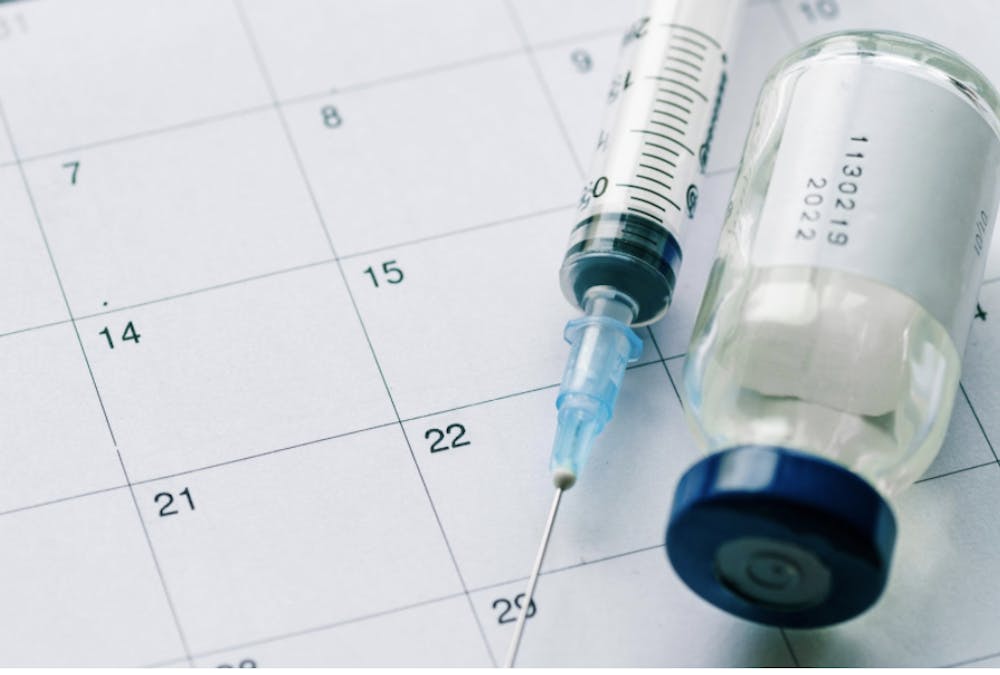By Jenny Marcinkowski
Staff Writer
The U.S. has distributed over 200 million vaccines to adults, surpassing President Biden’s pledge to have 100 million doses distributed in the first 100 days. Currently, there are three vaccines for distribution: Pfizer, Moderna and Johnson & Johnson. The FDA lifted the hold on the Johnson & Johnson vaccine on April 24, however, the vaccine will now come with a warning about the blood clots.
Both Pfizer and Johnson & Johnson’s CEOs stated that people might have to get vaccinated annually for the virus, similar to the flu shot. Both Albert Bourla, Pfizer CEO, and Ozlem Tureci, BioNTech co-founder and CMO, said a booster shot will likely be required.
“A likely scenario is that there will be likely a need for a third dose, somewhere between six and 12 months and then from there, there will be an annual revaccination, but all of that needs to be confirmed. And again, the variants will play a key role,” Bourla said during a CVS Health event. Moderna’s CEO Stéphane Bancel made similar comments to Business Insider. He hopes for people to have the opportunity to get the booster shot before the fall.
“I think that sounds great. I want to have ongoing protection for myself and others. To me, it’s no different than getting the flu shot every year,” said Rebecca Silverman, senior communication major, regarding the booster shot.
Others like Lauren Jackapino, sophomore special education and elementary education major, assumed a booster shot would be necessary. However, she hopes that the process of finding the vaccine would be smoother and that it does not have the same effects as receiving Moderna’s second dose.
“After already having Covid and getting the vaccine, I’d love to not have to think about it. I’m hoping the vaccines work well and the boosters aren’t needed, but if that’s the case, I would be willing to get it to return to life pre-Covid,” said Alejandra Cruz, senior mechanical engineering major.
April has been challenging for Johnson & Johnson as the CDC halted their distribution after nearly 6.8 million doses were administered because six women reported having a rare and severe blood clot. The women, all from the U.S., were ages 18 to 48 and the symptoms appeared within six to 13 days of their vaccination.
“By now, everyone's heard the birth control reasoning how they have way more cause for concern with blood clots. I agree with that. I’m not sure why they needed a hold for this, maybe they were worried it would turn into something bigger than 6 cases. But if that’s the case, why aren’t other medications, like birth control, looked into as well?” Silverman said.

Earlier this month, a manufacturing plant in Baltimore ruined 15 million doses of the Johnson & Johnson vaccine after mixing ingredients with the AstraZeneca vaccine, which has not been approved in the U.S. at this time. Those doses were not distributed.
The FDA ended their inspection of the facility on Tuesday and published their findings in a 13-page report which found that the facility failed to fully investigate the cross-contamination. Inspectors found “brown residue,” peeling paint and that workers were not following proper procedures.
The other vaccine being used in other countries is AstraZeneca. However, Dr. Anthony Fauci, Chief Medical Advisor to the president, told CNN that the U.S. will not be needing their vaccine.







